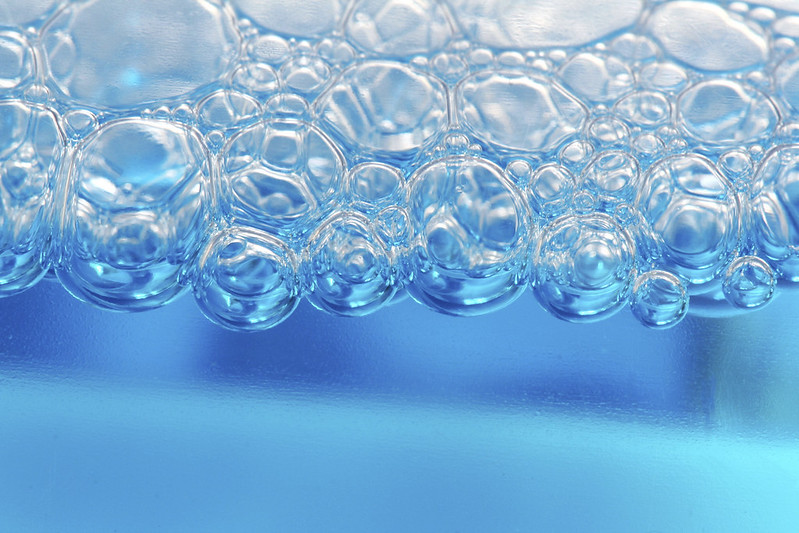The Role of Defoamers in Enhancing Item Top Quality and Performance
Defoamers offer as important additives that mitigate this issue, guaranteeing smoother production operations while boosting the visual and useful characteristics of the final products. The selection of the ideal defoamer can be vital to achieving ideal results, raising important inquiries concerning solution compatibility and performance metrics that warrant further expedition.
Comprehending Defoamers
Comprehending the duty of defoamers is necessary for preserving product high quality throughout numerous sectors. Defoamers are chemical additives developed to prevent the formation and reduce of foam in liquid systems, which can detrimentally affect procedures such as blending, filling, and surface stress. Foaming can bring about ineffectiveness, product issues, and endangered visual appeal, making defoamers a crucial part in producing procedures.
In industrial applications, defoamers help to enhance item consistency and stability. The reliable usage of defoamers not just makes sure smoother manufacturing processes however likewise contributes to premium item efficiency.
In addition, the option and solution of a defoamer have to line up with particular application needs, such as compatibility with various other ingredients, performance under differing temperature and pH conditions, and prospective governing constraints. Eventually, recognizing defoamers' functions and their relevance in numerous solutions is critical for maximizing manufacturing and guaranteeing the best output.
Kinds of Defoamers
Defoamers can be categorized into several types based on their composition and device of action. The key types consist of silicone-based, non-silicone natural, and inorganic defoamers.
Silicone-based defoamers are amongst one of the most effective, primarily as a result of their capability to spread out rapidly on the fluid surface area and disrupt foam formation. Their one-of-a-kind chemical framework allows for superior security, making them appropriate for high-temperature applications and atmospheres with differing pH levels.
Non-silicone organic defoamers, usually made up of all-natural oils or fats, are valued for their biodegradability and lower poisoning. These are generally used in food and drink applications where security and environmental influence are paramount.
Not natural defoamers, which consist of materials like talc or calcium carbonate, act by boosting the density of the liquid, thereby decreasing foam stability. They are commonly used in industrial processes where compatibility with other products is not a problem.
Each type of defoamer has distinctive advantages and constraints, enabling for tailored options depending on the specific lathering problems run into in various applications. Comprehending these distinctions is crucial for enhancing performance and attaining wanted product high quality.
Applications Across Industries
Countless industries take advantage of defoamers to enhance product top quality and functional performance. In the food and drink market, defoamers are crucial in processes such as brewing and milk production to protect against foam development, which can result in inadequacies and item incongruity. By regulating foam, makers can make sure far better return and a much more consistent product.
In the pharmaceutical sector, defoamers play an important duty in the formula of fluid medicines, where too much foam can restrain blending and accurate dosing. Their usage aids keep the stability of the formulations and facilitates smoother manufacturing processes.
The paint and finishings market additionally depends on defoamers to enhance the efficiency of products throughout application. By decreasing foam, these ingredients make certain a smoother surface and enhance the visual top qualities of the last product.
Benefits of Utilizing Defoamers
While the application of defoamers varies throughout markets, their advantages continually enhance product top quality and procedure effectiveness. One substantial advantage is the decrease of foam formation throughout manufacturing processes, which can otherwise bring about manufacturing hold-ups and inconsistencies in product top quality. By reducing foam, defoamers enable a smoother circulation of materials, facilitating more efficient procedures and minimizing the chance of tools breakdowns.
Additionally, the use of defoamers can enhance the look and texture of end products. In markets such as finishings, paints, and food over at this website processing, too much foam can jeopardize the aesthetic aesthetics and total top quality, while the ideal defoamer application guarantees a consistent finish and desirable characteristics. In addition, defoamers can add to cost savings by lowering waste throughout manufacturing and maximizing using basic materials (defoamers).

Choosing the Right Defoamer
Choosing the appropriate defoamer is critical for maximizing manufacturing processes and making sure item high quality. The option of defoamer influences not just the efficiency her response of foam control however additionally the total efficiency attributes of the end product. Elements to take into consideration include the kind of application, the chemistry of the formulation, and the environmental problems under which the product will certainly be utilized.
Various industries might need details defoamer kinds, such as silicone-based, natural, or polymeric defoamers. Comprehending the compatibility of the defoamer with the main active ingredients is necessary to prevent damaging responses that can endanger product stability. Additionally, the defoamer's effectiveness in various temperatures and pH levels must be reviewed to make sure constant performance.
Examining the defoamer in small-scale applications can offer beneficial insights right into its performance and suitability. Factor to consider of regulative conformity, especially in food, drugs, and cosmetics, is vital in selecting a defoamer. Eventually, a thorough evaluation of these variables will cause the selection of a defoamer that not only manages foam effectively however likewise boosts the quality and performance of the end product.
Conclusion

To conclude, defoamers are crucial additives that substantially boost item top quality and efficiency throughout numerous sectors. By effectively decreasing foam development, these representatives not just improve functional performance yet additionally add to the functional and aesthetic integrity of products. The strategic selection and application of defoamers result in cost savings, enhanced resource use, and increased customer complete satisfaction. In general, the value of defoamers in industrial processes can not be overstated, as they play a vital role in attaining regular and top quality outcomes.
Lathering can lead to inefficiencies, item flaws, and jeopardized visual charm, making defoamers an important element in manufacturing procedures.

Comments on “How Defoamers Can Save Time and Money in Industrial Production”